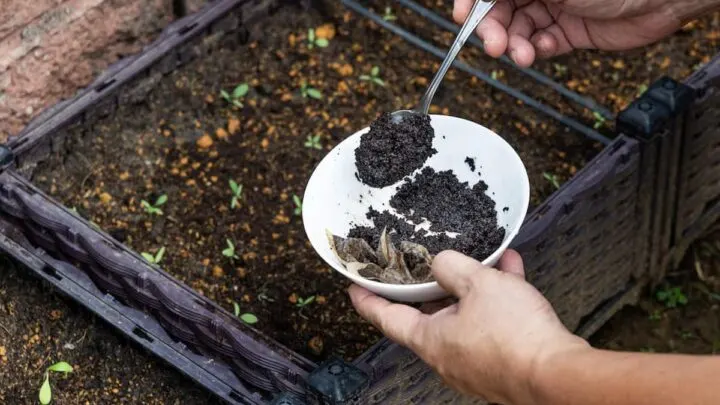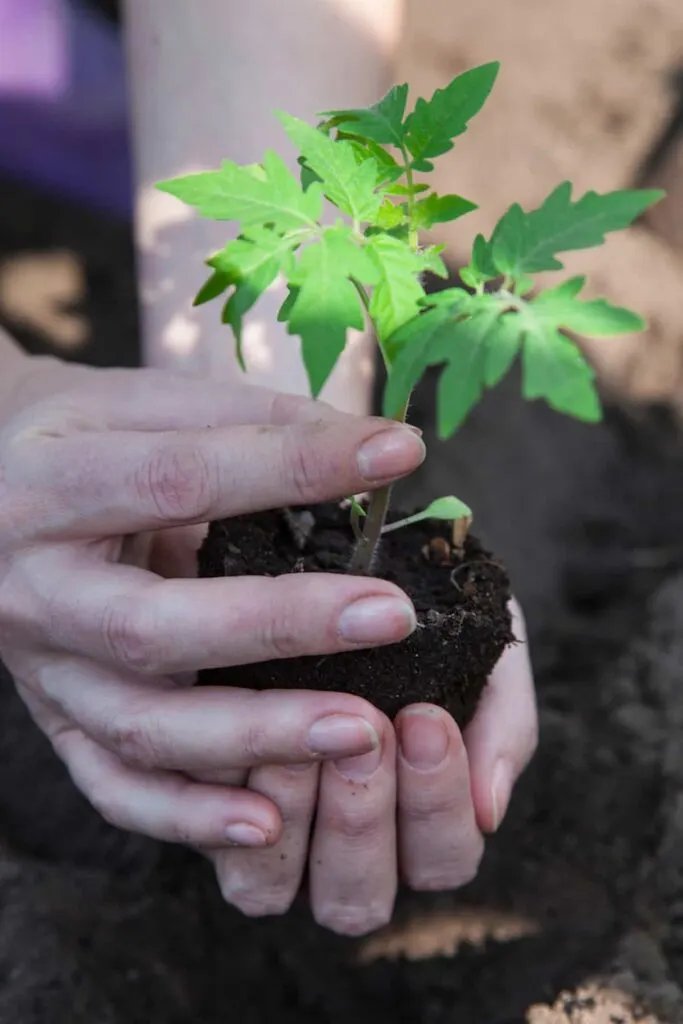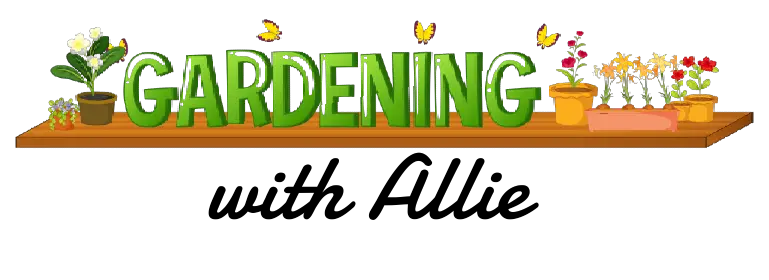Coffee grounds are a popular choice of homemade fertilizer among gardeners, and some even use coffee grounds as a natural mulch in their gardens. There are several reasons why gardeners like using coffee grounds around their tomato plants. But, do tomatoes like coffee grounds?
Tomatoes like coffee grounds. Coffee grounds provide nitrogen and acidity to the soil, leading to better foliage and increased growth and flowering in tomatoes. Tomatoes should use coffee grounds in moderation as too much can adversely affect the plant.
These include the nutrients and acidity that coffee grounds bring to the soil. In this article, we will explain everything gardeners need to know about using coffee grounds on tomato plants.

Can You Sprinkle Coffee Grounds Around Plants?
Yes, you can sprinkle coffee grounds around plants. When doing this, it is recommended that you are careful not to overload your plants with coffee grounds. This is because too many coffee grounds could potentially damage your garden. A little goes a long way regarding this type of homemade fertilizer.
In addition, it is also recommended that you only sprinkle coffee grounds around plants that like slightly acidic soil and could benefit from the nutrients that coffee grounds offer. Tomato plants meet both of these requirements because they thrive in slightly acidic soil and can often also benefit from the trace amounts of nitrogen, potassium, and phosphorus that coffee grounds give off.
Some other types of plants in addition to tomatoes could benefit from having coffee grounds around them. Some of these plants include but are not limited to:
- Peppers
- Carrots
- Potatoes
- Radishes
- Parsley
- Cabbage
- Lilies
- Roses
Of course, when planting any plant, you must research what nutrients and fertilizer they need. This is especially true of tomato plants because they can be rather fickle regarding things like fertilizer and its effect on their growth and development.
Are Coffee Grounds And Eggshells Good For Tomato Plants
We have already established that coffee grounds can make a great homemade fertilizer for tomato plants, but what about adding eggshells to the mix? Crushed-up eggshells add some much-needed calcium to a garden’s soil, which can be very beneficial to tomato plants.
This is because tomato plants are often in need of more calcium. Calcium aids a tomato plant in processing other nutrients and building strong cell walls. A tomato plant that is given some extra calcium will likely develop stronger roots and fruits, making them less susceptible to rot damage and disease.
It is important to mention that your garden will need more than just eggshells as fertilizer. This is because eggshells only add calcium to the soil, and most plants need a wider variety of nutrients than just calcium. This is especially true of tomato plants, which need nutrients like nitrogen, potassium, and calcium to be healthy.

When it comes to tomato plants mixing a few crushed egg shells with coffee grounds can be a great way to give them a small boost of nutrients. The coffee grounds will provide the tomato plant with nutrients like nitrogen, potassium, and phosphorus. Meanwhile, the egg shells will provide the tomato plant with some healthy calcium.
How Often Should I Put Coffee Grounds On My Tomato Plants?
You should add some coffee grounds to the soil around your tomato plants about once a week. This is because adding coffee grounds to your garden around once a week keeps the soil at the ideal acidity for tomatoes. However, depending on the acidity of your base soil, you may need to do this less frequently.
You can easily test the acidity of the soil around your tomato plants with a pH testing kit for soil. Testing your soil’s acidity before adding more coffee grounds ensures that you will not make the soil around your tomato plants too acidic. This is important because soil that is too acidic could potentially damage your tomato plants over time. A good level of acidity for tomato plants is a pH of around 6 to 6.5.
When putting coffee grounds around your tomato plants, it is also best to do so sparingly. This is because too many coffee grounds can easily make the soil more acidic than the pH recommended for tomato plants. Very acidic soil tends to make tomato plants grow more slowly, and they may not develop properly either.
Can You Put Too Many Coffee Grounds On Tomato Plants?
Yes, you can put too many coffee grounds around your tomato plants. There are a few reasons why adding too many coffee grounds could potentially damage your tomato plants.

Too Many Coffee Grounds Could Make The Soil Too Acidic
The first way that too many coffee grounds could potentially damage your tomato plants is that it can make the soil too acidic. Although tomatoes like slightly acidic soil, too much acidity can cause the tomato plant to have trouble absorbing nutrients. This can eventually result in the plant not growing or developing properly if the soil is too acidic for an extended period of time.
Too Many Coffee Grounds Could Mess With Your Tomato Plants Nutrients
In addition to this, using too much coffee grounds around your tomato plants could potentially lead to them receiving the wrong balance of nutrients. A nutrient imbalance can also cause problems with the growing and development of tomato plants.
Too Many Coffee Grounds Could Dry Out Your Tomato Plants
There is a third way that too many coffee grounds around your tomato plant could potentially do harm, and this may surprise some gardeners. If coffee grounds are packed in around your tomatoes, they could harden over time. This will form a hard crust that water and air will have a hard time passing through. In extreme cases, this could prevent water and oxygen from reaching your tomato plants’ roots. These things are essential for your tomato plant’s survival.
What Is The Best Homemade Fertilizer For Tomatoes?
The best homemade fertilizer for tomato plants is one that has a good balance of nutrients that tomato plants need. Your compost will need nutrients like nitrogen, potassium, phosphorus, and calcium.
You can get this blend of nutrients in a variety of different ways. No matter what you make up your homemade fertilizer with, you must ensure it is evenly mixed. This way, you can ensure that all your tomato plants receive the same levels of nutrients.
Of course, if mixing your own fertilizer is not your thing, then plenty of different store-bought fertilizers work great on tomato plants as well. This includes both organic and non-organic options.
Do You Fertilize Tomatoes When Fruiting?
You should continue giving your tomato plants fertilizer when they are fruiting. It is recommended that you give your tomato plants fertilizer when they are flowering. Then, wait until the tomatoes are about the size of a golf ball before giving them fertilizer again. Waiting during this period will prevent your tomatoes from being overfed with fertilizer.
Giving your tomato plants fertilizer when they are starting to produce fruit will encourage the fruits to get to the size that you want. Plus, fertilizing your tomato plants at this stage will also encourage more fruit production. Using a quality fertilizer during this time will also ensure that the tomatoes your tomato plants produce are of good quality.
Things To Consider
You may want to consider some other things about tomatoes liking coffee grounds. These things include the signs that you need to adjust your tomato plant’s fertilizer and what other types of homemade fertilizers are good for tomatoes. Here are some additional things for gardeners to consider about giving their tomato plants coffee grounds.
Signs That You Need To Adjust Your Tomato Plant’s Fertilizer
As mentioned in this article, tomato plants need a good blend of nutrients to grow and develop properly. Luckily, there are some signs that your tomato plants will give you when you need to adjust their fertilizer. Here are some signs that you need to change the fertilizer for your tomato plants.
- Slow growth or a stunted plant
- Yellowing leaves
- Overly thick leaves
- Plant developing small fruits or no fruits at all
- A white material forms on the surface of the soil
- Plant not flowering or developing properly
If you notice anything from the list above in your tomato plant, then this may be a sign that you are either giving them too much or too little fertilizer.
What Are Some Other Good Homemade Fertilizers For Tomatoes
Some other things work well as homemade compost for tomato plants besides coffee grounds and eggshells. Here are some other things you can give tomato plants to give them a little boost in nutrients!
- Wood ashes
- Tea leaves
- Vegetable scraps
- Fruit scraps
- Banana peels

Hi there, my name is Allie and welcome to my blog; GareningWithAllie!
Much of what you see written here is just our personal experiences with gardening. Along with the content I write here, there is also a unique collection of gardening topics covered by some of our close friends. I hope you find everything you read here to be helpful, informative, and something that can make your gardening journey the most lovely experience ever! With that said, Happy Gardening!
